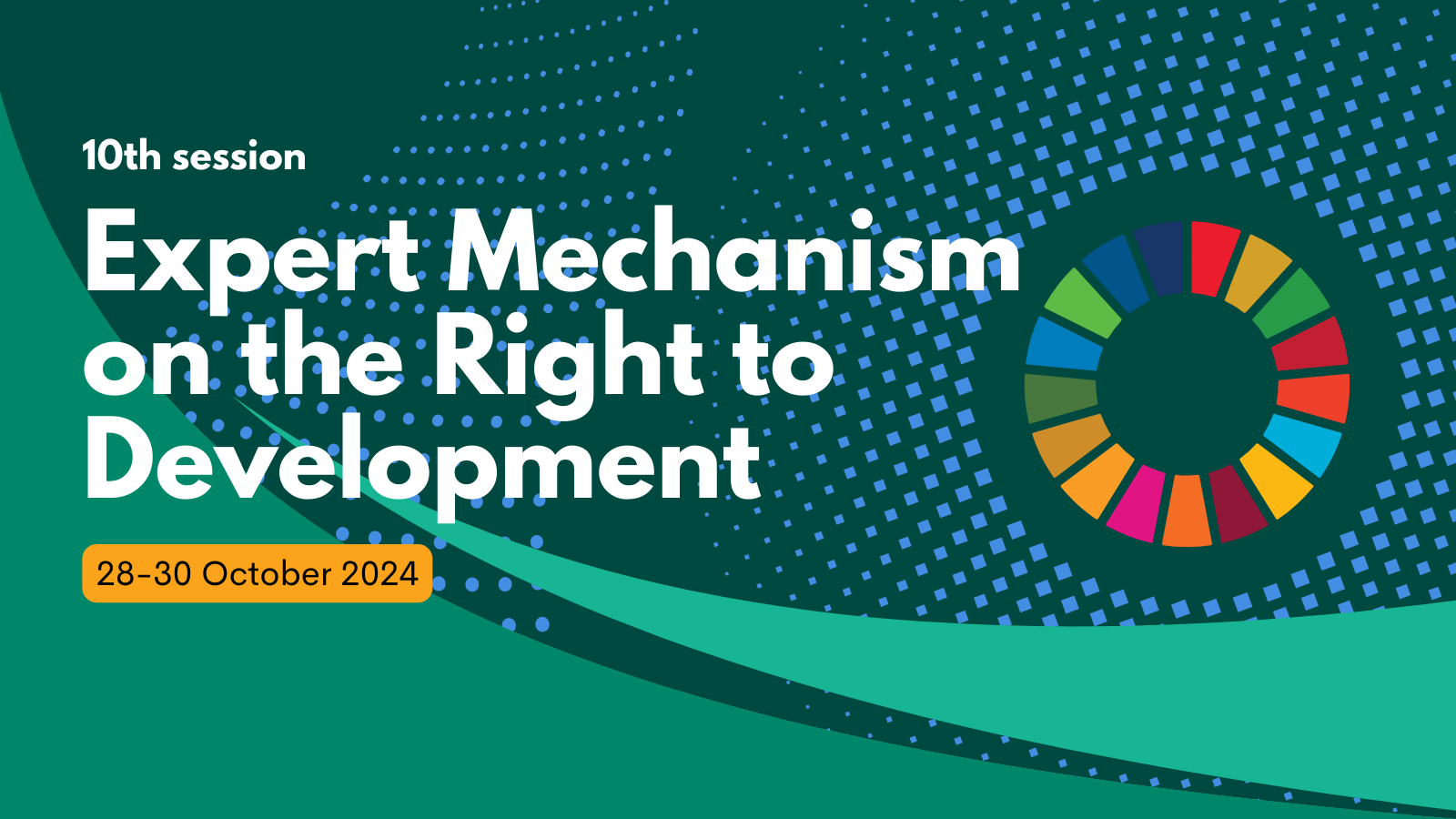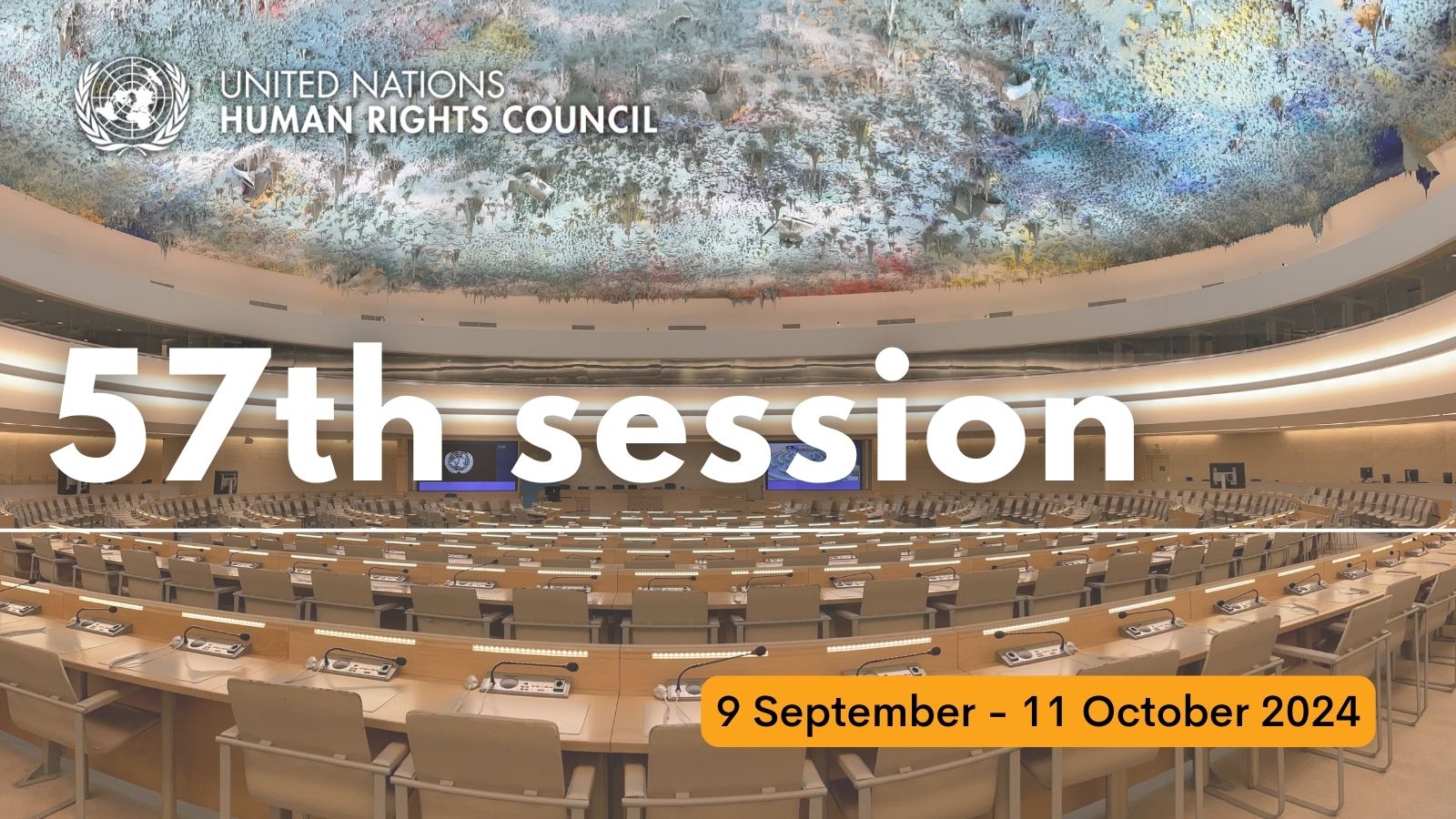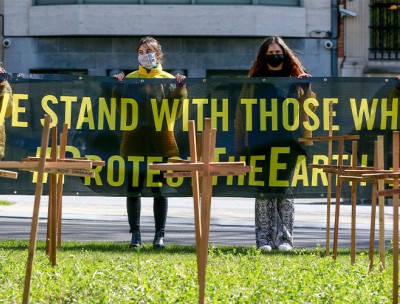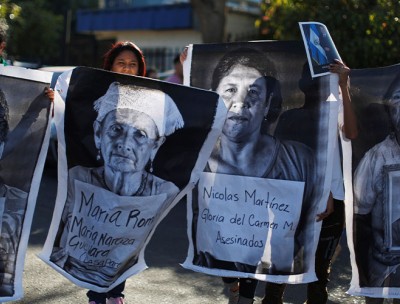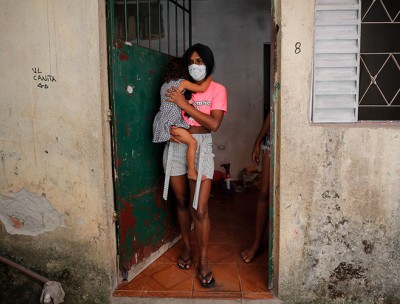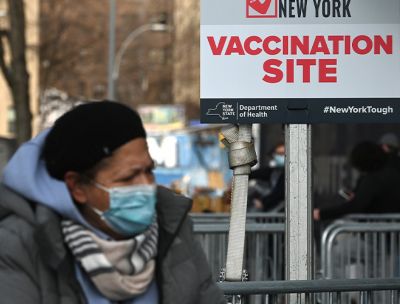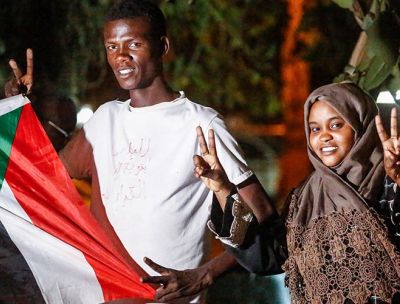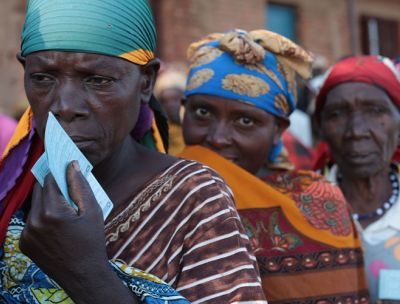
Human Rights Council
The Human Rights Council is an intergovernmental body within the United Nations system made up of 47 States responsible for the promotion and protection of all human rights around the globe.
It has the ability to discuss all thematic human rights issues and situations that require its attention throughout the year. It meets at the United Nations Office at Geneva.
Working Group on the Universal Periodic Review
Seventeenth session of the Forum on Minorities Issues
Human Rights Council News
Human Rights Council News
Call for inputs for thematic report on Financing and Mercenarism
Pursuant to Human Rights Council resolution 51/13, the Working Group on the use of mercenaries as a means of violating human rights and impeding the exercise of the rights of peoples to self-determination (the Working Group) monitors the use of mercenaries, mercenary related activities, and the activities of private military and security in all their forms and manifestations. The Working Group is mandated to study and identify sources and causes, emerging issues, manifestations and trends with regard to mercenaries and mercenary-related activities and private military and security companies and their impact on human rights, particularly on the right of peoples to self-determination.
Twice a year, the Working Group on the use of mercenaries issues calls for inputs to inform its thematic studies to be presented at the Human Rights Council in its September session and at the UN General Assembly in October.
The Working Group intends to dedicate its next thematic report to financing and mercenaries and mercenary related actors.
The inherent lack of transparency surrounding the recruitment, financing and use of mercenaries and related actors, and the difficulties in distinguishing such actors from the multitude of State and armed non-State actors involved in contemporary conflicts and other applicable contexts, represents key challenges, addressed by the WG in its ongoing work. In particular, the opacity surrounding their means of payment and overall financing channels, makes it challenging to trace the exact sources of funding and it has thus not allowed for a detailed discussion on the magnitude of funds hidden from states; funds that often undermine development, reconstruction and peace efforts. At the same time, this opacity is one of the main concerns prompting the Working Group to shine a light on the phenomenon. This year the WG would thus like to analyze in detail the actors, channels and means involved in financing mercenaries while highlighting human rights violations and drawing member states’ attention to the grave challenges illicit financing plays in context where mercenaries operate.
The Working Group is conscious that gaps in information remain, particularly with regard to some regions.
Mindful that the contexts in which mercenaries operate have an impact on women, children, and other groups in differentiated and disproportionate ways, the Working Group will seek to highlight particular examples where possible.
- Scope of study and key questions
The Working Group welcomes submissions from States, civil society organizations, academics, international and inter-governmental organizations, national human rights institutions, private companies, individuals, and any other concerned actors.
The Working Group welcomes any information deemed pertinent to the topic and is particularly interested in the issues mentioned below. In addressing the indicated thematic issues, please provide to the extent available, examples, good or bad practices, and recommendations that you consider important in the context of this call for inputs, as well as any analysis on future developments in this area.
While all submissions are welcome and the questions below are not meant to be exhaustive, the Working Group would be grateful for comments that address topics, including:
Background and context
Modes of financing and actors involved in the recruitment of mercenaries, mercenary-related actors and PMSC.
- To what extent are States funding mercenaries and related actors? What is being funded, including salaries, weapons, materiel, logistical support etc? How this happens, and what other agents are involved?
- To what extent are non-State actors involved in the financing of mercenarism?
- How do States and other clients pay for the services of mercenaries and related actors?
- To what extent does access to and exploitation of natural resources fund mercenarism?
Overview of the contexts in which financing of mercenaries and mercenary related actors, root causes and overall challenges
- To what extent is the traditional banking system used in the financing of mercenaries? And to what extent are crypto currencies and alternative financial structures (e.g. mobile banking) used in the financing of mercenaries? What are the overlaps between the systems?
- How are individual mercenaries and related actors financially remunerated for their services, including e.g. payments to families on death/disappearance?
- What is the role of non-pecuniary remuneration or compensation e.g. citizenship, reduction of a prison sentence? How is this form of compensation facilitated?
- What are the impacts of sanctions regimes on the operations of mercenaries and related actors, if any?
- Who are the enablers and/or intermediaries in the process of financing mercenary and mercenary-like activities? What is their role?
Accountability and access to justice and remedy for victims of illicit financing
Challenges encountered in relation to illicit financing of mercenaries and mercenary-related actors, and human rights violations perpetrated in this context.
- What are the challenges around establishing that a person is motivated by private gain (pecuniary and/or non-pecuniary) per GC AP1 Article 47(2)(c)?
- To what extent is the criminalisation of the financing of mercenarism by the International Convention on Mercenarism and the African Convention on mercenarism effective?
- What are State parties to the International Convention doing to prevent the commission of the offence of financing of mercenaries and related actors within and outside their territories?
- To what extent are State parties implementing the provisions on financing of mercenarism? Can good practices be observed?
What are the appropriate approaches to seek accountability for human rights violations perpetrated in the context of illicit financing?
- Has any State been held accountable for financing mercenaries and related actors?
- Are there examples of persons or organisations being held accountable or prosecuted for financing mercenarism?
- What challenges can be identified in the process of holding states/actors responsible for financing mercenarism?
How inputs will be used
Inputs will be used to inform the report’s findings and recommendations.
A/79/305: Trends and challenges in the financing of mercenaries and related actors
States
Other stakeholders
Association of Reintegration of Crimea

